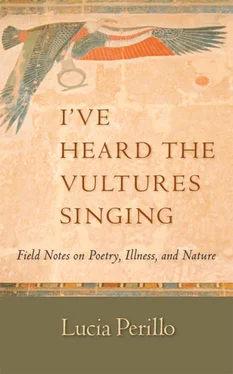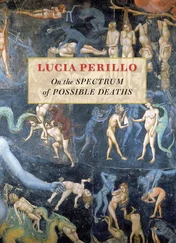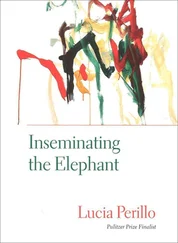Lewis Hyde calls “the labor of gratitude” part of the circular passage of a gift and maintains that this “is wholly different from the ‘obligation’ we feel when we accept something we don’t really want. . Giving a return gift is the final act in the labor of gratitude, and it is also, therefore, the true acceptance of the original gift.” But I see two stumbling blocks in front of this theory about how poetry circulates: first, what if the return gift violates the terms of the ritual in some way? A recent pointed example was Amiri Baraka’s creating, in return for the state of New Jersey’s mantle of poet laureate, a poem called “Somebody Blew Up America,” which accused Jews of having foreknowledge of the destruction of New York’s Twin Towers.
The second problem is more significant: what if poetry really is something most people don’t want — what if they’d rather see advertisements for products they might use instead of the poems that civic arts organizations are always trying to foist on them on the city bus? How does this lack of interest transform the gift? Presumably, the Northwest tribes savored the food exchanged at their feasts. But what if you brought a bowl of silkworm larvae to a modern-day potluck supper — nutritious food that is even considered a delicacy in some parts of the world? I bet you would have a hard time getting people to eat the larvae. Or if they did, it would only be because eating them would prove their macho fearlessness.
When my book of poems went out of print, I bought half the copies that were to be destroyed — seven hundred — for a dollar and nineteen cents each. I’d read about other writers doing this, a truck arriving with pallets that required a fork-lift, but when the shipping line’s semi finally pulled up in the alley and the driver hoisted up the roll-door of the trailer, my heart deflated a bit when I saw only a stack of cardboard boxes, half the size of a refrigerator, strapped in the rear of the empty truck. The boxes looked sad in their grimy cavern, like a dwarf wearing a grown man’s shabby tuxedo. Where could he be going, dressed like that?
Answer: to my storage locker, a warren of rooms made from plywood behind the bus station downtown. Not having any windows, the place was pitch-black when the lights weren’t ticking around their timers for a maximum of fifteen minutes, after which the lights clicked off again to leave me stranded in the dark. Without delay, I made a stab at selling some books. I took a few over to Barnes & Noble, where the clerk summoned a manager who said they could only sell books that were provided by their corporate headquarters in a city far away.
But I live here, I said. I’m local.
Sorry, they said, you don’t have a vendor number. Anything we sell has to have a number. Then I said, Well then perhaps you would be interested in these candles. The velvet is dusty but they are brightly colored underneath.
The local used bookstore took a few, however, and even treated me kindly enough to pull me from my dejection flashback. But I knew it would take at least a century for seven hundred copies of my book to dribble from that store. So I took out an ad in a review where some of my poems were going to appear, a friend having sketched it up on her computer.
It was a small ad that cost eighty bucks, but when the review dropped through my mail slot a few weeks later I was stunned to see it enlarged to fill half a page. We had extra space , the editors said after I wrote to them in panic, so we gave it to you. That’s how I learned one more thing about the taint of poetic commerce — the humiliation attached to it increases in direct proportion to the amount of space utilized for its purposes. A billboard might be a suitable place to sell a movie, but to sell a book of poetry it is unthinkable. Something about the proportion — little book, big ad — is painful.
This pain comes, I think, from the violation of the rules surrounding the circulation of gifts: the poet is supposed to say modestly to other members of the tribe, Oh here, just take it. Friends had stopped by when the books first arrived, and I’d told them that since I wanted to be rid of the books I was going to sell them for the postage cost. “Don’t do that,” they advised, “people do not value something if it costs them nothing.” So they cooked up a price they thought appropriate. And it was thrilling, I must admit, when checks started appearing in my post office box, even though the thrill came tinged with shame.
Only one order came from a poet whose name I knew. Her tone was aggressively interrogative, wondering just exactly who was selling the books. “It’s only me!” I wrote back — though she had a right to be indignant, being a midcareer sort of poet, like me, a member of the tribe with whom my trade ought to have been as gift. And my husband asked if I worried about cheapening myself. (Exactly what does it mean, “cheapen myself”? We do not want to be our mere Ford Pinto versions. But I’m already a Ford Pinto sort of person, given to breakdowns and liable to explode.)
Poets generally delude themselves into thinking they are not selling anything, though books are objects to be sold, no escaping this base fact unless we throw our pages into brooks, as the great haiku writers of ancient Japan supposedly did. There’s also a blind spot in thinking about poems as being offered completely free, and that blind spot is— oh, right —posterity. Though the two poets singled out in The Gift —Ezra Pound and Walt Whitman — never made much money, both did obsess about the long haul and massaged their legacies in the most P. T. Barnum-esque ways. For one’s poem to catch enough wind to get blown into the future: this is the biggest of the bucks, the ultimate payoff.
Yet the boundary between gift and commerce can sometimes be wiggly, like when I gave more copies of my book to the used bookstore (because they’re sold out, success making commerce a smidgen less awkward) in exchange for store credit. And my encounter with the yard sale — hosting poetry reader also gives me the idea that I might have to rearrange my thinking about who comes from my tribe and who is a stranger. Indeed, various efforts have been made recently to pound a few holes through poetry’s garden wall. One was undertaken by the former laureate Robert Pinsky: nonpoets were videotaped reading their favorite poems. These videos were then digitally archived and broadcast on public television (although public TV itself is an insular, some might say hoity-toity, world).
And here Lyndon Johnson returns to haunt us, in the form of his boyish press secretary, Bill Moyers, who has produced documentaries about contemporary poetry, again for the viewers of public TV. I taught for the first time at a summer writing conference shortly after the first of these shows were broadcast, and the other (more famous) poets dismissed the way they thought their art was being milled to pabulum for the public. Using The Gift to analyze their response to Moyers’s efforts, I might say they felt threatened by the way that tribal membership was being opened up to outsiders.
Other wall-holes have been punched by the American Poetry and Literacy Project, which has left thousands of free poetry books in public settings. Its catalyst was Joseph Brodsky, another former laureate, who wrote an essay that was delivered before the Library of Congress and later reprinted in the New Republic , in which he chastised America for letting its great poetry languish. “At the very least,” he wrote, “an anthology of American poetry should be found in the drawer in every room in every motel in the land, next to the Bible, which will not object to this proximity, since it does not object to the proximity of the phone book.” Later, this intimacy took a dimensional leap when the APLP caused poems to appear in the phone book itself.
Читать дальше











![Various - Birds and Nature, Vol. 12 No. 5 [December 1902]](/books/745517/various-birds-and-nature-vol-12-no-5-december-thumb.webp)
![Various - Birds and Nature Vol. 11 No. 2 [February 1902]](/books/745533/various-birds-and-nature-vol-11-no-2-february-1-thumb.webp)